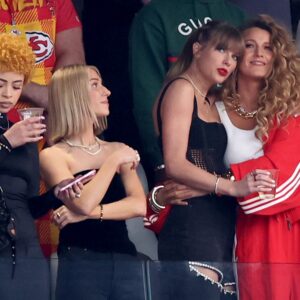The passage you provided seems to be a commentary on the phenomenon of male actors being asked to wear dresses in movies, particularly within the context of Hollywood and the entertainment industry. It touches upon themes of integrity, choice, cultural influence, and the impact of money on decisions.Here’s a revised version of your text:

The pressure from Paramount was undeniable. They were eager to sign deals, even if it meant compromising integrity. But for some, playing along with such demands crossed a line. Where did integrity go amidst the allure of fame and fortune? The issue at hand wasn’t merely about wearing a dress—it was about the values one stood for.
The narrator questions the prevalence of men wearing dresses in movies, citing figures like Cat Williams who’ve spoken out against the trend. Williams’ critique isn’t baseless; it sheds light on the industry’s tendency to enforce such roles, even upon reluctant actors.
Kevin Hart’s journey is emblematic of this dilemma. Initially resistant to the idea, he eventually succumbed to the pressure, rationalizing it as a choice. But was it truly a choice, or was it the allure of money clouding judgment? Hart’s admission that he’d sacrifice integrity for financial gain reveals the moral quandary many face in show business.
The narrative also highlights instances where actors like Steve Harvey and Martin Lawrence faced similar dilemmas. Harvey’s willingness to compromise his integrity for a hefty paycheck mirrors the industry’s harsh reality. Lawrence, on the other hand, resisted wearing a dress despite pressure from colleagues, staying true to his beliefs.

The commentary delves into the spiritual and cultural implications of such decisions, with references to personal beliefs and ancestral customs. It suggests that deviating from these values can lead to negative consequences—a notion supported by the narrator’s own experience.
Ultimately, the passage urges caution against blindly following the influence of celebrities and industry norms. It challenges the notion that wearing a dress as a man is acceptable simply because it’s normalized in certain contexts. In doing so, it champions the importance of upholding personal integrity and cultural identity in the face of external pressures.
News
“”Breaking News:Ryan Reynolds and Wife to Pause Careers for Dedicated Parenting and Charity Work!(GREAT)…
Ryan Reynolds and Blake Lively Announce Career Hiatus to Focus on Family and Philanthropy In an unexpected turn of events, Hollywood power couple Ryan Reynolds and Blake…
“”RICH FASHION:Blake Lively dazzles in $500,000 jewelry at American Rugby Championship, cheering on Taylor Swift’s beau!
Blake Lively, known for her impeccable style and roles in hit shows like “Gossip Girl,” chose this high-profile sports event to flaunt an exquisite jewelry collection, including…
“”Hottest News Today: Ryan Reynolds Announces Family Decision to Welcome Another Baby in 2025!(I LOVE YOU)…
“Ryan Reynolds and Blake Lively’s Family Grows: Expecting Another Bundle of Joy in 2025” In a heartwarming announcement that has left fans ecstatic, Hollywood power couple…
(3)OMG MINUTES AGO: Feds expose Kourtney Kardashian’s XTAPE SECRET with Justin Bieber as a minor
attention surrounding the case. The collaboration between federal agencies suggests a coordinated effort to address any possible legal violations comprehensively. This multi-agency approach underscores the seriousness of…
“”Unmasked: Ryan Reynolds Spills on the Tracks He Bans from His Eardrums!…
As one of Hollywood’s most beloved comedic actors, Ryan Reynolds has made a career out of playing sarcastic, self-deprecating characters who find humor in life’s absurdities. Through…
“”Perfect on Screen, Imperfect Within: Ryan Reynolds’s Candid Confessions on Perfectionism’s Price…
Ryan Reynolds is known for his dedication to his craft, but there can be downsides to striving for perfection. As one of Hollywood’s most bankable leading men,…
End of content
No more pages to load











